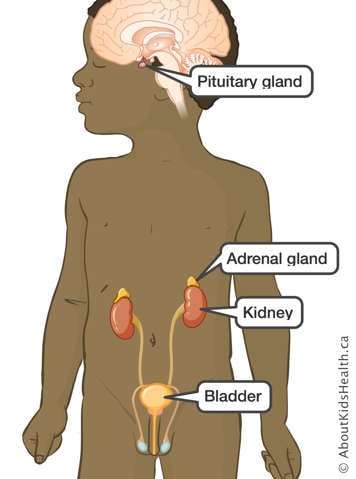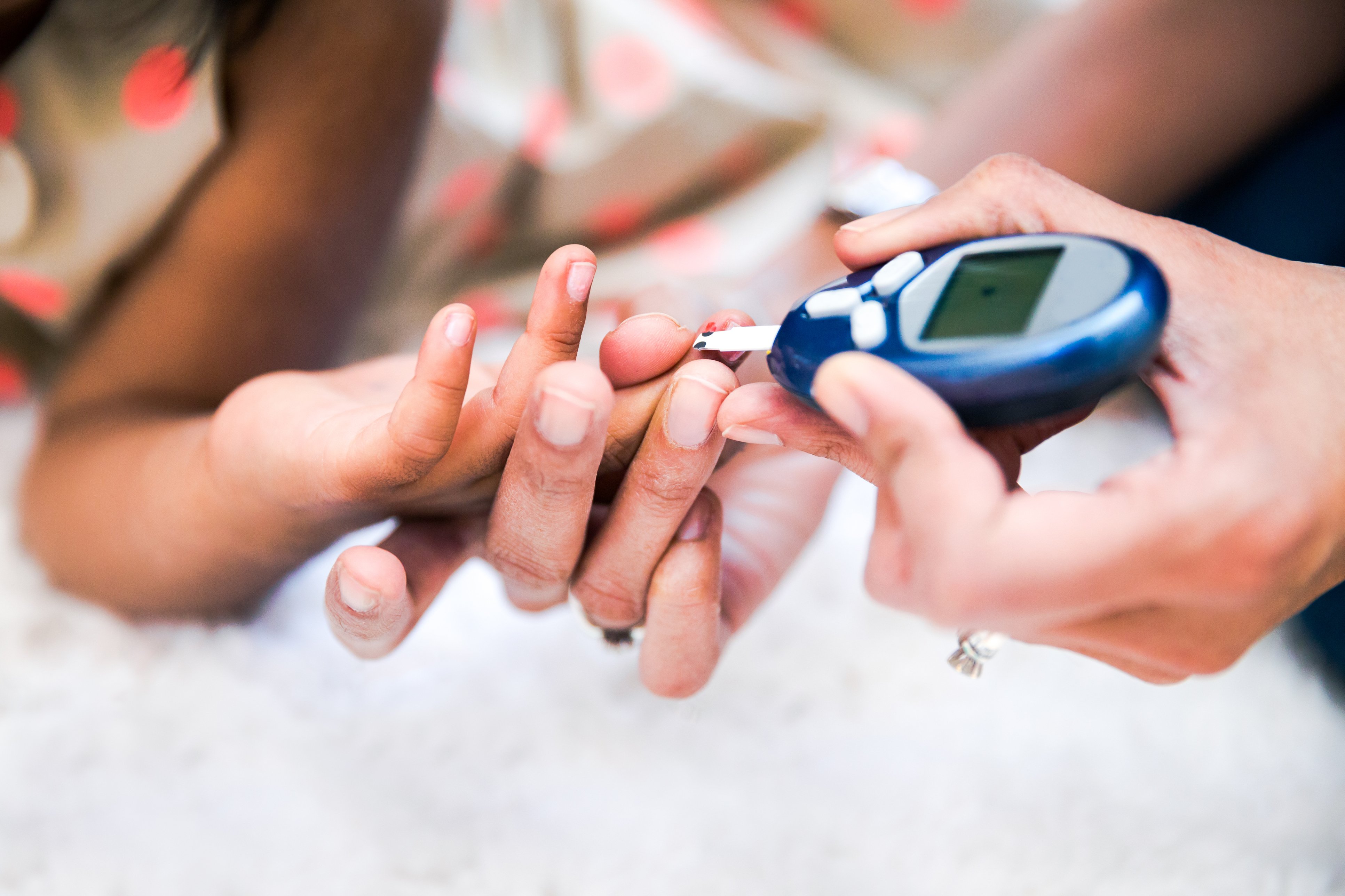Addison’s disease is an autoimmune disease where the immune system attacks the adrenal glands. The adrenal glands are located above the kidneys and release many different hormones (chemical messenger) into the blood. This includes cortisol and aldosterone, two hormones that help respond to body stress and work to maintain a normal blood pressure. Damage to the adrenal glands decreases cortisol and aldosterone production.
Signs and symptoms of Addison’s disease

Addison’s disease is rarely seen in the general population. It tends to occur more often in people with type 1 diabetes, but it is still very rare. Symptoms of Addison’s disease include:
- frequent low blood glucose (sugar) levels
- low insulin needs
- severe fatigue
- darkening of the skin
- weight loss and decreased appetite
- low blood pressure
- fainting
- salt craving
- nausea or vomiting
- belly pain
- muscle or joint pain
- mood changes
- body hair loss.
Diagnosis of Addison’s disease
A blood test for cortisol levels is used to help diagnose Addison’s disease.
Treatment of Addison’s disease
Treatment may consist of oral medications (pills) to replace the hormones cortisol and aldosterone. Your child will have to take these medications for the rest of their life.
